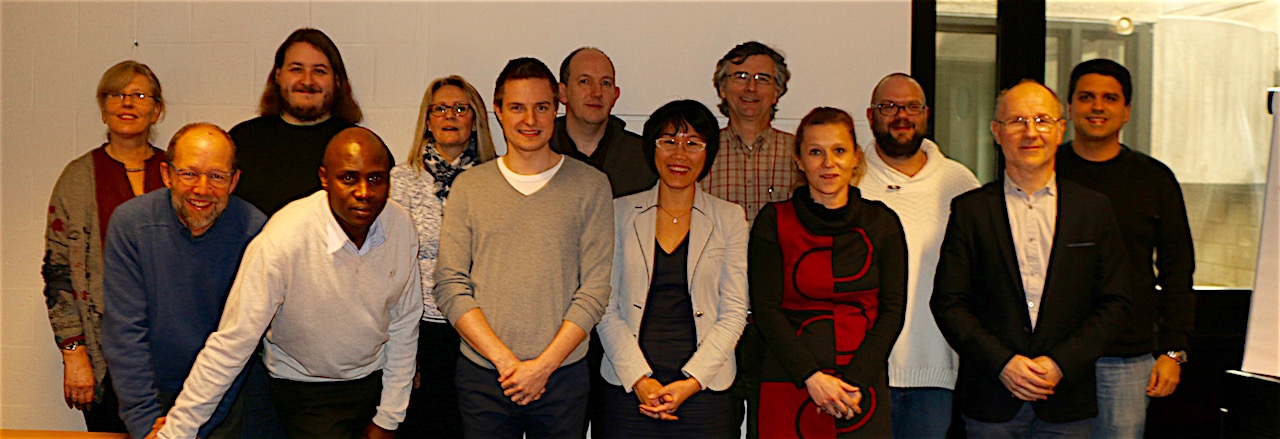Community
Every software community starts with a core team, whose members were the first ones to believe in the project. This is a major part of the team that is responsible for making OSIS available to you. They give their best to make your higher education institution run smoothly.

From left to right: Christine Jacqmot, Jean-Paul Minet, Axel Masset, Evase Nizeyimana, Christelle Van Nieuwenhuysen, Bastien Mottiaux, Philippe Bruyère, Hang Hoang, Benoît Moreau, Leïla Verpoorten, Gaëtan La Marca, Yves Deville and Hildeberto Mendonça.
There are many ways to get involved:
- Sign-in in our mailing lists: we have created one for users to discuss features, ask questions, give suggestions, etc.; and another one for developers to discuss how to develop new features, test existing ones, install and configure the application, etc.
- Talk directly to the team: we have a chat available for those who want to
talk directly to a member of the team. This is the fastest way to get your
questions answered.
- Contribute with code, design and documentation: There are many ways to contribute. The main ones are solving issues by writing code, improving the user interface design and usability, and documenting how the application works. Learn more about contributing to the project.
- Report issues every time you find one: when you find an opportunity to improve OSIS the best thing to do is to create an issue in our issue tracking. The fastest way to get your issue done is discussing it with the project leader, try to solve it yourself and send a pull request. Or you can simply wait for the community to do it for you in the future.
- Follow OSIS on Twitter: visit our Twitter profile and follow the updates.
- Join the team: sometimes we open development positions to reinforce the team. You can find available positions at UCL’s website. We also tweet about available positions as soon as they become available. Stay tuned!
Code of Conduct *
As contributors and maintainers of this project, and in the interest of fostering an open and welcoming community, we pledge to respect all people who contribute through reporting issues, posting feature requests, updating documentation, submitting pull requests or patches, and other activities.
We are committed to making participation in this project a harassment-free experience for everyone, regardless of level of experience, gender, gender identity and expression, sexual orientation, disability, personal appearance, body size, race, ethnicity, age, religion, or nationality.
Examples of unacceptable behavior by participants include:
- The use of sexualized language or imagery
- Personal attacks
- Trolling or insulting/derogatory comments
- Public or private harassment
- Publishing other’s private information, such as physical or electronic addresses, without explicit permission
- Other unethical or unprofessional conduct.
Project maintainers have the right and responsibility to remove, edit, or reject comments, commits, code, issues, and other contributions that are not aligned to this Code of Conduct. By adopting this Code of Conduct, project maintainers commit themselves to fairly and consistently applying these principles to every aspect of managing this project. Project maintainers who do not follow or enforce the Code of Conduct may be permanently removed from the project team.
This code of conduct applies both within project spaces and in public spaces when an individual is representing the project or its community.
Instances of abusive, harassing, or otherwise unacceptable behavior may be reported by opening an issue or contacting one or more of the project maintainers.
* This Code of Conduct is adapted from the Contributor Covenant, version 1.2.0.
